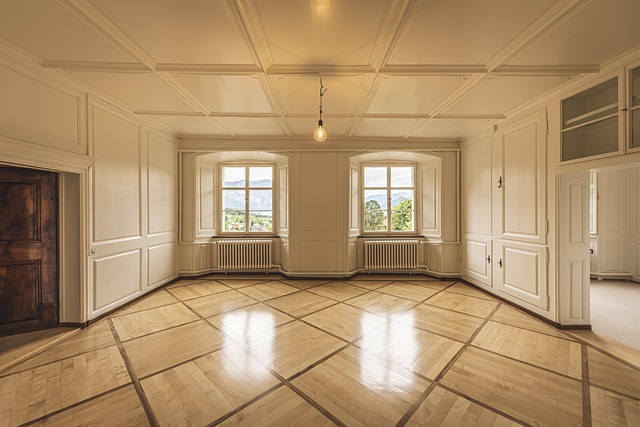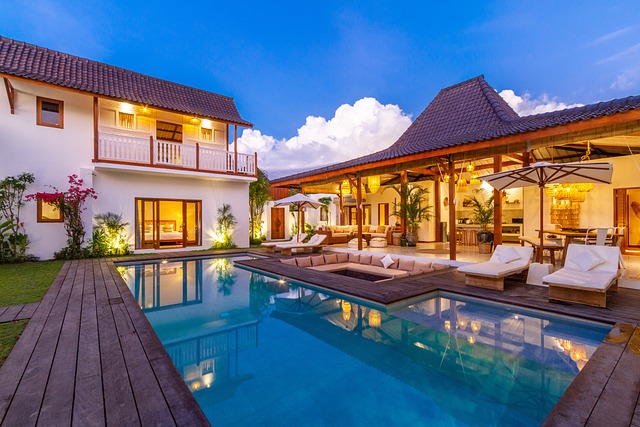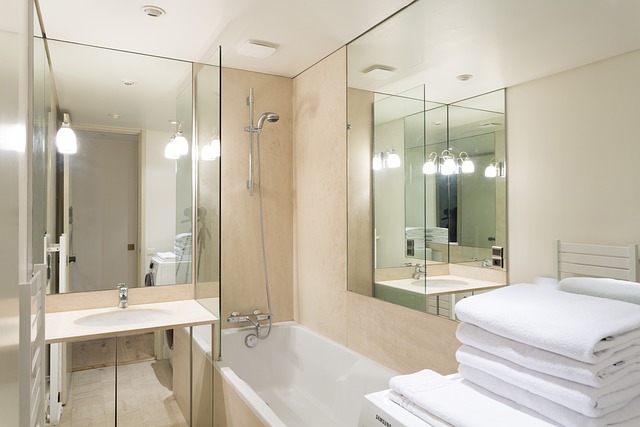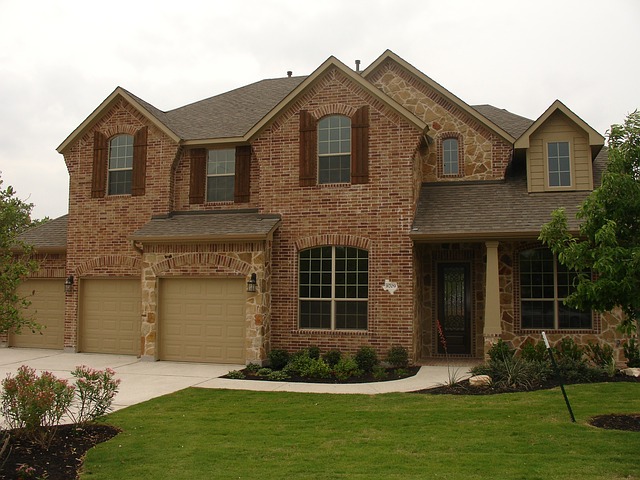Executive Condominiums (ECs) in Singapore cater to middle-income families and first-time homeowners, serving as a transitional housing option between public HDB flats and private condominiums. Prospective EC residents must satisfy specific eligibility criteria set by the Housing & Development Board (HDB), including income ceilings not exceeding S$16,000 for families, a minimum 5% downpayment or S$30,000, and adherence to Total Debt Servicing Ratio (TDSR) and Mortgage Serving Ratio (MSR) guidelines. ECs come with a 5-year Minimum Occupation Period (MOP) before they can be sold on the open market, reflecting the government's commitment to fostering stable home ownership. The price of ECs is influenced by factors such as location, development features, and government policies like income ceilings and eligibility criteria adjustments. Understanding Executive Condo Eligibility is crucial for anyone considering this housing option in Singapore, given its unique position within the property market and its role in meeting the needs of a diverse range of homeowners.
navigating the Singapore property landscape, potential homeowners and investors alike find Executive Condominiums (ECs) an attractive option. This article delves into the EC price dynamics in Singapore, offering a comprehensive guide from eligibility criteria to market trends. We explore the nuances of owning an EC, including the pivotal five-year Minimum Occupation Period (MOP), financial eligibility requirements, and the influence of public housing policies on pricing. With insights into past EC price patterns and expert advice on securing a mortgage, readers will be well-equipped to understand the current and future state of EC prices in this vibrant market.
- Understanding Executive Condominiums (ECs) in Singapore: A Primer
- Executive Condo Eligability Criteria for Prospective Buyers
- The Five-Year MOP Factor: What It Means for EC Residents in Singapore
- Qualifying for an EC: Income Ceiling and Other Financial Considerations
- EC Price Trends in Singapore: A Historical Perspective
- How to Apply for a Mortgage for Your Executive Condo in Singapore
- The Impact of Public Housing Policies on EC Prices in Singapore
- Future Outlook for EC Prices in Singapore: What Investors Need to Know
Understanding Executive Condominiums (ECs) in Singapore: A Primer

In Singapore, Executive Condominiums (ECs) represent a unique segment of the housing market that caters to the needs of both first-time homeowners and upgraders. These hybrid properties offer the luxuries of condo living at a more affordable price point compared to private condominiums. Prospective residents should be well-versed with the Executive Condo eligibility criteria, which include being Singapore citizens or permanent residents intending to stay in the unit for a minimum occupation period. Additionally, applicants must not own another flat and have income ceilings set by the Housing & Development Board (HDB). Understanding these conditions is crucial for anyone looking to purchase an EC as it ensures compliance with Singapore’s housing policies, designed to accommodate different stages of life and financial readiness.
The pathway to EC ownership begins with a careful assessment of one’s eligibility and financial capacity. Once eligible, buyers can enjoy the benefits that come with owning an EC, such as larger living spaces compared to HDB flats, condominium facilities like swimming pools and gyms, and the potential for appreciation in property value. Over time, ECs can be sold on the open market, transitioning from a public housing option to a private asset, which makes them a versatile choice for those seeking flexibility in their living arrangements and investment opportunities. Prospective buyers must stay updated with the regulations governing ECs, as eligibility criteria and conditions may change over time to align with national housing policies.
Executive Condo Eligability Criteria for Prospective Buyers

In Singapore, the concept of Executive Condos (ECs) serves as a housing option tailored for public housing flat owners and married couples, allowing them a step up from HDB flats. To be eligible to purchase an EC, prospective buyers must satisfy certain criteria set by the CPF Board and Housing & Development Board (HDB). For instance, both applicants must be Singapore Citizens and not have any outstanding housing loans. Additionally, at least one applicant must currently own or have disposed of a resale flat, which has been occupied for at least 5 years. Couples intending to purchase an EC are also required to earn a combined monthly income of not more than S$14,000 or less. This financial requirement ensures that ECs cater to middle-income families and not the affluent, preserving their affordability and aligning with the intended group in society. The eligibility criteria for ECs are designed to provide a progressive housing pathway for citizens, enabling them to upgrade their living spaces as they progress in their careers and financial stability. Prospective buyers should familiarize themselves with these conditions to ascertain their suitability for an Executive Condo before making any commitments.
The Five-Year MOP Factor: What It Means for EC Residents in Singapore

In Singapore, the concept of living in an Executive Condominium (EC) is a unique blend of public and private housing that offers a step up from traditional HDB flats while retaining a level of affordability. A significant factor for potential EC residents to consider is the Minimum Occupation Period (MOP). The MOP for an EC is five years, which is different from both public and private condominiums. Upon satisfying the MOP, residents have the flexibility to sell their EC on the open market, or opt to upgrade to a resale flat or another EC without penalty. This distinction in MOP is crucial as it affects the long-term planning of residents, influencing their investment strategy and potential return on investment. For those who purchase an EC with the intention of living in it for a significant period, the MOP factor ensures a commitment to the community and stability within the housing estate. It’s also important for prospective buyers to understand that during the MOP, they are not allowed to sublet their EC to Singaporeans or to foreigners. This rule is part of the eligibility criteria set by the CPF (Central Provident Fund) Board, which oversees EC resale rules and ensures that ECs are primarily used for the benefit of their residents as intended under the Executive Condo Eligibility guidelines. Understanding the MOP and its implications is a critical part of the decision-making process for those considering an EC as their home in Singapore.
Qualifying for an EC: Income Ceiling and Other Financial Considerations

When considering the purchase of an Executive Condominium (EC) in Singapore, understanding the eligibility criteria is paramount for prospective buyers. As per the latest guidelines, applicants must satisfy the income ceiling requirement set by the Housing & Development Board (HDB). The monthly household income must not exceed S$14,000 for those living in a DBSS (Design, Build and Sell Scheme) flat, or S$16,000 for others. This cap is intended to ensure that only eligible applicants with a stable income can apply for an EC, reflecting the Executive Condo Eligibility guidelines aimed at providing affordable housing options for middle-income families.
Beyond the income ceiling, there are other financial considerations to take into account when qualifying for an EC. Prospective buyers should assess their finances holistically, considering factors such as the downpayment required, which is a minimum of 5% or S$30,000 (whichever is higher), and the Total Debt Servicing Ratio (TDSR) and Mortgage Servicing Ratio (MSR) limits. These financial constraints are designed to ensure that buyers can manage their monthly mortgage payments without overextending themselves. Additionally, potential EC owners must consider the 5-year Minimum Occupation Period (MOP) before they can sell the unit on the open market. This aspect of Executive Condo Eligibility underscores the commitment to stable and responsible home ownership in Singapore’s property market.
EC Price Trends in Singapore: A Historical Perspective

Executive Condominiums (ECs) in Singapore have undergone a significant evolution in terms of pricing over the years, reflecting broader trends in the property market and changes in government policy. From their inception in 1994, ECs were designed as a housing option for young couples and first-time homeowners who might otherwise be priced out of the private condominium market but aspire to upgrade from a public housing flat. Over time, the price trajectory of ECs has been influenced by factors such as location, unit size, development features, and the overall economic climate.
Historical data shows that EC prices have generally trended upwards, aligning with the growth in Singapore’s economy and the increasing demand for urban living spaces. Prices have been particularly sensitive to policy changes, such as the introduction of the Multi-Generation Flat scheme or adjustments to the qualifying criteria for Executive Condo eligibility, which include a minimum occupancy period before owners can sell their units in the open market. Prospective buyers must also satisfy the Monthly Household Income Ceiling set by the Housing & Development Board (HDB), making ECs an accessible yet aspirational housing option. As such, understanding the historical pricing trends of ECs is crucial for anyone looking to invest or purchase an EC, as it provides a context for current and future market dynamics.
How to Apply for a Mortgage for Your Executive Condo in Singapore

The Impact of Public Housing Policies on EC Prices in Singapore

Executive Condos (ECs) in Singapore are a unique class of hybrid housing designed to provide an affordable option for couples and families, particularly those who are unable to purchase Housing & Development Board (HDB) flats due to higher income levels. The Singapore government’s public housing policies have had a significant impact on the pricing of ECs. These policies aim to strike a balance between affordability and upgrading options for residents. By setting eligibility criteria for EC ownership, which includes limitations on income ceilings and existing property ownership, the government ensures that ECs cater primarily to middle-income families. This targeted approach has influenced the demand-supply dynamics in the EC market, affecting price points. As a result, EC prices have been shaped by factors such as location, development quality, and the overall economic climate. The eligibility requirements for purchasing an EC also mean that buyers typically have higher purchasing power compared to those purchasing HDB flats, which can lead to higher price ceilings for these condos. Consequently, the pricing of ECs reflects a delicate interplay between government policies aimed at social housing and market forces. Prospective buyers considering Executive Condo eligibility must navigate this balance when making their housing decisions in Singapore’s dynamic property landscape.
Future Outlook for EC Prices in Singapore: What Investors Need to Know

In concluding our exploration of the Executive Condominium (EC) landscape in Singapore, it’s clear that these hybrid housing options play a pivotal role in the property market, offering a pathway to homeownership for both singles and families. Prospective buyers must carefully consider the eligibility criteria and financial implications, including the income ceiling and the five-year Minimum Occupation Period (MOP), to navigate this unique segment effectively. EC price trends, influenced by historical patterns and public housing policies, provide valuable insights into the market dynamics shaping these properties. As we look ahead, it’s evident that staying informed on the latest mortgage application processes and future outlooks will be crucial for investors and homeowners alike. The ecological diversity of ECs in Singapore, tailored to cater to a wide array of needs, underscores their significance in the nation’s property portfolio.
